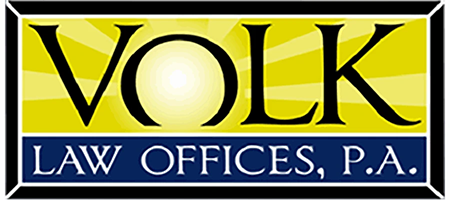Collections Attorney
 Collections involves the process of getting a debt paid. Some debts will be paid voluntarily upon a legally proper demand being made. Others require winning a lawsuit Judgment which finds that the money is owed. The Judgment is not an Order to pay money. It establishes that the money is owed and you must then use the legal remedies available to a Judgment holding creditor to get that Judgment paid. Those remedies include garnishment, attachment, and levy. VolkLaw is experienced in proving money is owed and then invoking the remedies, which are highly complex, to seek payment through seizure of assets. Like all cases, proving the debt is not easy. You must follow specific rules of evidence to prove a claim. The experienced courtroom attorney knows what must be proved and how to prove it.
Collections involves the process of getting a debt paid. Some debts will be paid voluntarily upon a legally proper demand being made. Others require winning a lawsuit Judgment which finds that the money is owed. The Judgment is not an Order to pay money. It establishes that the money is owed and you must then use the legal remedies available to a Judgment holding creditor to get that Judgment paid. Those remedies include garnishment, attachment, and levy. VolkLaw is experienced in proving money is owed and then invoking the remedies, which are highly complex, to seek payment through seizure of assets. Like all cases, proving the debt is not easy. You must follow specific rules of evidence to prove a claim. The experienced courtroom attorney knows what must be proved and how to prove it.
In addition to failing to prove the case, the untrained, inexperienced attorney can run afoul of collection laws. Is seeking payment of some debts, consumer protection laws must be followed. Most individuals do not know and understand their rights and protections when it comes to a debt collector Federal law has a Fair Debt Collection Practices Act and a Fair Credit Reporting Act. The State of Florida has a debt collection act as well and it also applies to actions taken by the creditor itself.
The Fair Debt Collection Practices Act, for instance, explains what is and is not allowed by consumer debt collectors. It protects consumers against threats, harassment, unwanted calls to your place of employment, and divulging any information or the existence of a debt to your friends and neighbors. For example, a third-party debt collector cannot legally threaten to take your house or sue you if you don’t pay the debt. They also cannot legally call your workplace repeatedly if your boss doesn’t allow it. Consumers also have the right to ban contact during certain times, like before 9 a.m. and after 6 p.m. Violations of the law gives consumers the right to sue the debt collectors individually, or in a class-action lawsuit.
Consumer debt collectors must inform consumers of their rights to dispute the debt when first contacting them. The debt collector also has to inform the debtor of the name of the creditor, the debt amount, the fact that the debtor can request verification of the debt, and that unless the debtor decides to dispute the legitimacy of the debt within 30 days, the debt will be considered valid. Debtors have 30 days from the initial contact call to write and send a verification letter if they want to request written proof or verification of their debts.
The matters discussed here are general in nature and are not to be relied upon as legal advice. Every specific legal matter requires specific legal attention. The law is constantly changing and matters discussed today may not be the same tomorrow. Legal matters are also subject to different interpretations by attorneys, judges, jurors, and scholars. No attorney-client relationship is intended or created as a result of matters discussed here. You should consult counsel of your choice if you have any dealings in these areas of the law. Volk Law Offices, P.A. and its attorneys make no representations or warranties with respect to the accuracy or completeness of the matters addressed.
